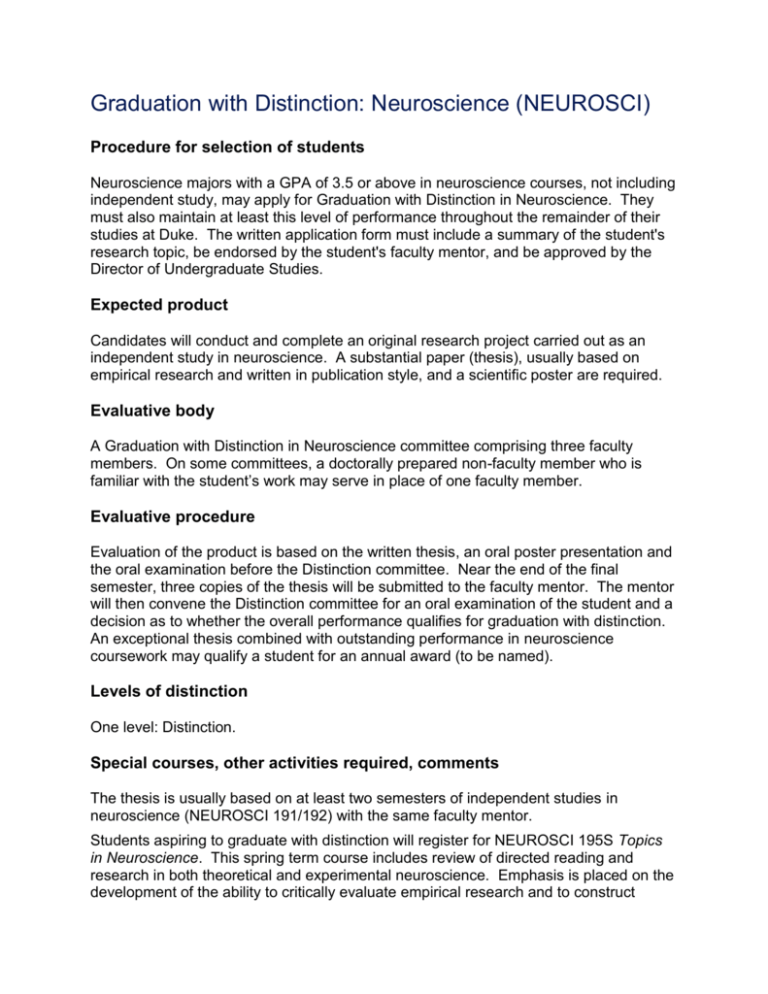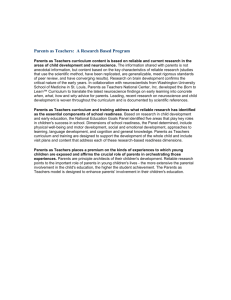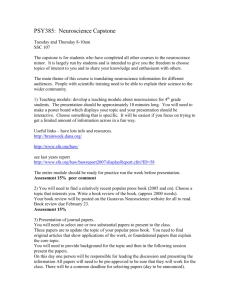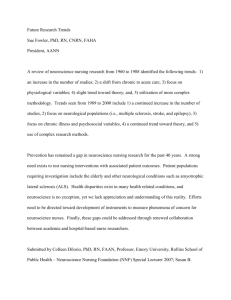Neuroscience
advertisement

Graduation with Distinction: Neuroscience (NEUROSCI) Procedure for selection of students Neuroscience majors with a GPA of 3.5 or above in neuroscience courses, not including independent study, may apply for Graduation with Distinction in Neuroscience. They must also maintain at least this level of performance throughout the remainder of their studies at Duke. The written application form must include a summary of the student's research topic, be endorsed by the student's faculty mentor, and be approved by the Director of Undergraduate Studies. Expected product Candidates will conduct and complete an original research project carried out as an independent study in neuroscience. A substantial paper (thesis), usually based on empirical research and written in publication style, and a scientific poster are required. Evaluative body A Graduation with Distinction in Neuroscience committee comprising three faculty members. On some committees, a doctorally prepared non-faculty member who is familiar with the student’s work may serve in place of one faculty member. Evaluative procedure Evaluation of the product is based on the written thesis, an oral poster presentation and the oral examination before the Distinction committee. Near the end of the final semester, three copies of the thesis will be submitted to the faculty mentor. The mentor will then convene the Distinction committee for an oral examination of the student and a decision as to whether the overall performance qualifies for graduation with distinction. An exceptional thesis combined with outstanding performance in neuroscience coursework may qualify a student for an annual award (to be named). Levels of distinction One level: Distinction. Special courses, other activities required, comments The thesis is usually based on at least two semesters of independent studies in neuroscience (NEUROSCI 191/192) with the same faculty mentor. Students aspiring to graduate with distinction will register for NEUROSCI 195S Topics in Neuroscience. This spring term course includes review of directed reading and research in both theoretical and experimental neuroscience. Emphasis is placed on the development of the ability to critically evaluate empirical research and to construct mathematical or deductive/inductive models. Final project includes preparation of a formal research proposal and a review of the role of ethics in science. NEUROSCI 195S, while central to the Graduation with Distinction in Neuroscience experience, is designated as an “allied elective”. Since only one allied elective may count towards completion of a Neuroscience major, most students Graduating with Distinction are likely to complete 11 (or more) NEUROSCI courses. Finally, Graduation with Distinction in Neuroscience research projects will be presented as scientific posters in April during the Visible Thinking undergraduate research forum.




